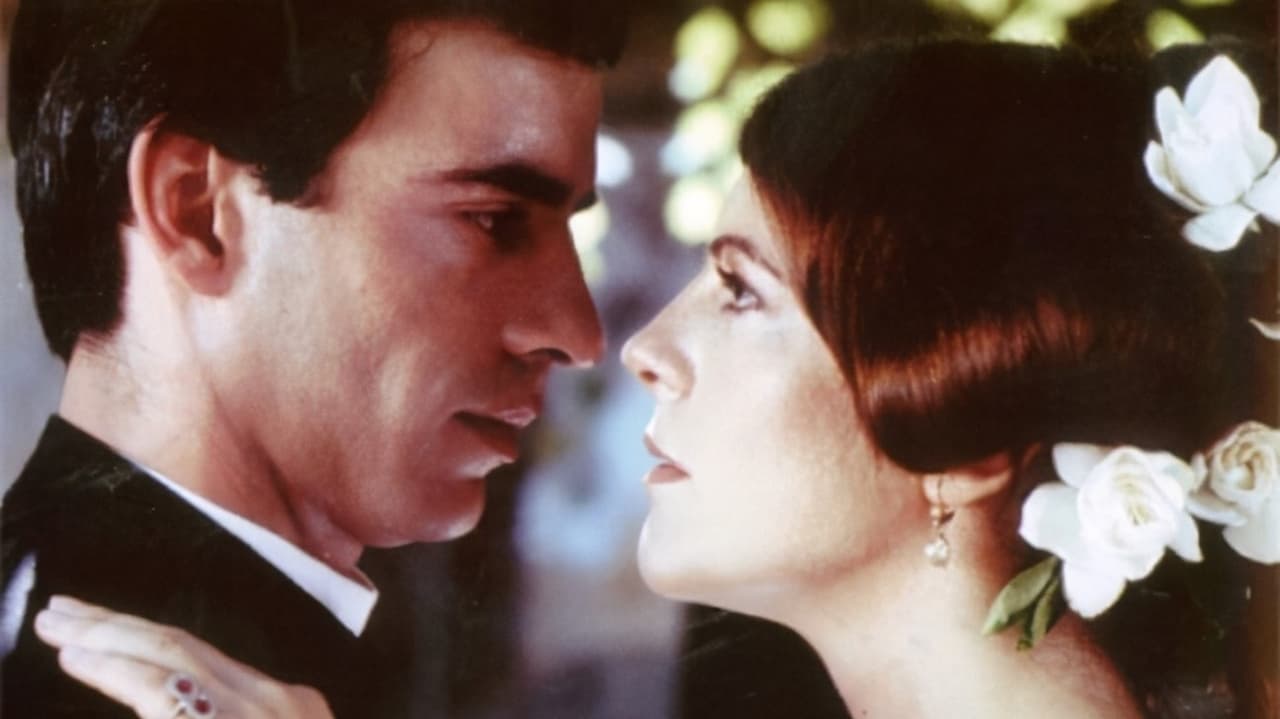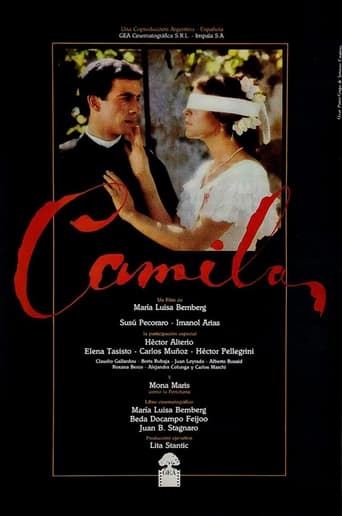

"Camila" takes place in Buenos Aires, Argentina (1847-1848) during the tyrannic rule of Governor Juan Manuel de Rosas. The film recounts the tragic true story of Camila O'Gorman, a 19 year old socialite, who falls madly in love and runs away with a young Jesuit Priest, Ladislao Gutierrez. For a few months they were able to live happily as man and wife in a small village near the border of Brazil where they worked as school teachers. Respected by all who knew them, and unaware of their real identity, Camila and Ladislao were eventually recognized by a priest and captured. Imprisoned and executed without a trial by Rosas' orders, their bodies were placed together in a double coffin. At the time of her death Camila was eight months pregnant (but, perhaps due to censorship the film alters that fact) and her execution, along with Ladislao's, prompted the downfall of Rosas' reign.This is a story that goes beyond doomed love, but also focuses upon personal and political freedom. Susu Pecoraro (Camila), who bares a strong resemblance to the real Camila, and Imanol Arias (Ladislao) are magnificent. This film is a masterpiece!
... View MoreThis film is about a doomed relationship between the daughter of a rich fascist-type landowner in Argentina about 1830 or so (after the successful revolution against the Spanish). The new government, it seems, feels that the end justifies the means and repression is used to keep control of the fledgling nation.Camila finds that she is not attracted to the macho rich suitors but instead finds herself drawn to the new Jesuit priest. Despite common sense and many obstacles, they run off together. What I found most interesting in the movie was the character of her father, who was instrumental in tracking them down and exacting punishment.In many ways, the plot reminded me of The Thorn Bird mini-series combined with a fascist-like backdrop. A pretty good film overall. Be aware, however, of the nudity. It's NOT as much as you might expect in such a film but considering he's a priest, it's bound to offend some.
... View MoreThis melodrama directed by Maria Luisa Bemberg is a story of a passionate woman who wants nothing more than to pursue her desire for love and life. The movie shows the audience the importance of the church and social classes and enables us to view the attitudes and emotions of people living during the dictatorship of Juan Manuel de Rosas. However, it is evident that Bemberg has a slight bias in that the movie is seen through the eyes of Camila O'Gorman. This film is a wonderful example of how the movies intend to manipulate the viewer, allowing Camila to have all the rights and giving none to Rosas is rather biased. The film strongly emphasizes the dictatorship of Rosas and the viewer is given the opportunity to see the profundity and power of this dictator.
... View MoreAfter watching Camila, I thought that the movie displayed true history of Argentina. The idea of religion and social class are demonstrated thoroughly throughout the movie. Camila takes on a strong role as a lady who is determined to be with her man. However, this man is a priest and has to obey to the church and g-d. Rosas helps define the true meanign of dictatorship with his brutality toward everyone. Camila is independent and very passioniate therefore the she has many conflicts with Rosas. After watching the movie, i did notice that the director is byased and sticks to her beliefs and attitudes. The main idea is for Argentina to protect its national reputation. Overall, this movie portrays many historical aspects and should be shown in other classes.
... View More